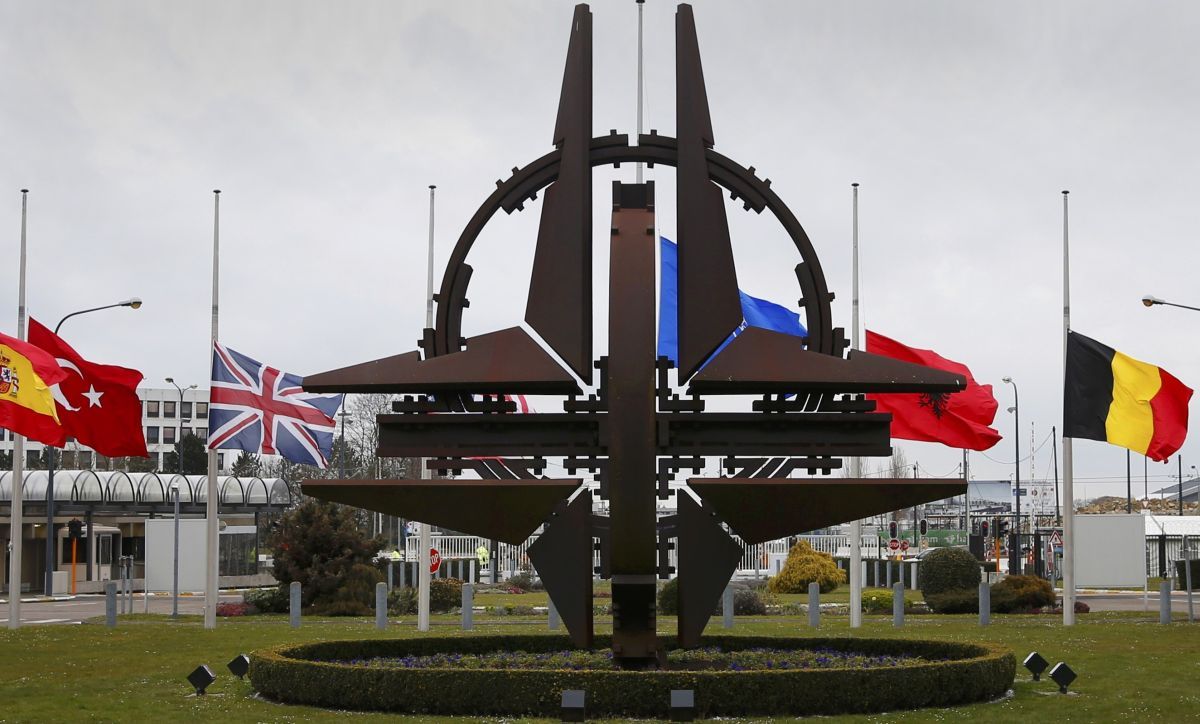
In the wake of Russia's annexation of Crimea two years ago, the world's most powerful military alliance has sharply increased its focus on Europe, shoring up the defenses of its worried eastern European members and beginning to think once again about how it might defend them in a scenario it once thought had become unthinkable: a Russian invasion, FT wrote.
But while NATO's troops are ready for a rapid reaction on home turf, the heads of government in its member states are not, warns its top military commander.
"It's one of the lessons from Ukraine," says General Denis Mercier, former head of the French air force and now supreme allied commander for transformation, one of the two top military jobs in NATO. "High responsiveness relies on two points. On the military side it relies on the ability to operate very quickly. But it also relies on responsiveness in political decisions."
To deploy troops for defense and reassurance or to actively fight requires a decision by the North Atlantic Council (NAC), NATO's governing political body. But securing consensus to act from its members — particularly in circumstances where events on the ground are murky — has proved to be a sometimes tortuous process.
For instance, securing political consensus on how to respond to Russia's lightning-quick annexation of Crimea or the 2014 shooting down of a Malaysia Airlines flight over Ukraine took too long, strategists believe.
"We can have forces ready to deploy in 24 hours but they are only going to do that if the NAC gives them the order," Gen Mercier says.
Other non-military threats, such as cyber-crime, where the perpetrators are often obscured, give another dimension to the scope of NATO's remit, he adds. "Now we are facing scenarios where the threshold of the crisis is not clear, hybrid scenarios with non-state or covert actors."
Gen Mercier's command, based in Virginia, is charged with constantly adapting structures and military capabilities within the alliance to keep it strategically and tactically relevant.
Read alsoAtlantic Council: How international media enables Russian aggression in UkraineMilitary strategists within NATO have been warning for some time that Russia's entire strategy is focused around creating challenges and provocations that are fluid, hard to read and consequently politically paralyzing.
As a result, when defense ministers from NATO members meet for regular discussions, they now play through their own realistic war-games. A scenario is presented to them and ministers role-play as if it was real.
"In just discussing problems, the realities of what they mean in terms of decision-making did not come up," says Gen Mercier. "But this scenario-based discussion with ministers, where we use real hybrid scenarios, means political leaders recognize the problems [we face]."
In February, for example, alliance defense ministers were shut in a room and presented with realistic dossiers of information and presentations from military officials about a hypothetical series of incidents in Lithuania: a cyber-attack on key infrastructure that was hard to attribute; a blockade by Russia of the port of Klaipeda; and riots provoked by agents linked to Moscow across the country.
The scenario showed up weaknesses in intelligence gathering and the need for speedy action, according to Gen Mercier, forcing NATO to entirely rethink the way it aggregates and sources intelligence material to present to its politicians.
As Russia's intervention in Ukraine showed, tweets and status updates, if analyzed correctly, cannot only provide intelligence just as compelling as that from classified sources, but they can also do it quicker.
"[The military command] are developing a new concept that we will propose to NATO, which will be to base our initial strategic assessments of these developing situations on non-classified information," the general says. "If we do that, we can cover a much wider range of parameters."
In these scenarios speed is crucial, says Gen Mercier, adding that NATO would look to gather information "from online, from diplomats, think-tanks, academics, locals", rather than relying solely on military intelligence.
But it is also a question of resources, he says, adding that if NATO's European members do not raise defense spending significantly in the coming months, "the credibility of our entire posture will be at stake."
"We are on the right track… but we need the budget and the manpower," he adds.
A list of NATO's military shortcomings is being drawn up by the general and his team and will be presented to defense ministers next year. It is likely to recommend more aircraft able to quickly reinforce the alliance's eastern frontier and additional ships to ply the seas around Europe.
"We need a lot more high-end capabilities — more war-fighting and responsive capabilities," says Gen Mercier.
"Nations will have to put in the resources necessary to get these capabilities as soon as we can."

